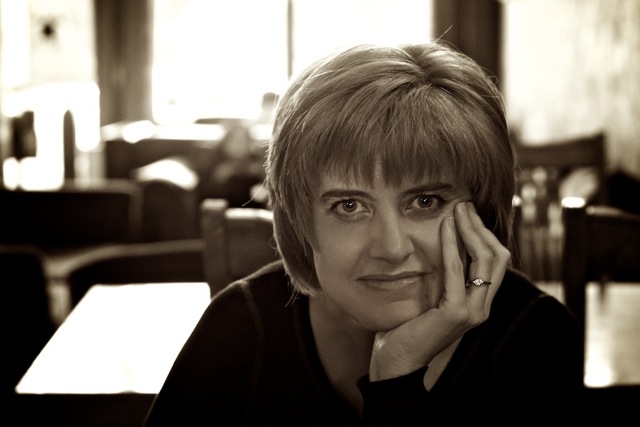P&W-funded Jo Scott-Coe is an associate professor of English and creative writing at Riverside City College in Southern California. Her memoir in essays, Teacher at Point Blank (Aunt Lute), was listed as a “Great Read” by Ms. Magazine. In 2009, she won the NCTE Donald Murray Prize for writing about teaching. Her nonfiction and interviews have appeared in many publications, including Salon, the Los Angeles Times, and Narrative. She is currently at work on a collection of lyric meditations about American public performances of violence since the UT Austin shooting in 1966.
 What average community college students may lack in literary experience, they more than make up for in curiosity and unpretentiousness. They’re less likely to know who is "famous" (and therefore supposedly more worthy of their attention). They’re less entrenched in parochial notions about genre and form, and are more likely to ask questions that are really on their minds.
What average community college students may lack in literary experience, they more than make up for in curiosity and unpretentiousness. They’re less likely to know who is "famous" (and therefore supposedly more worthy of their attention). They’re less entrenched in parochial notions about genre and form, and are more likely to ask questions that are really on their minds.
In the arts, there tends to be a confusing barrier between community and academic programs. We also often make erroneous assumptions about what kinds of students should, or could possibly, be interested in literary events—as if they are the exclusive domain of English majors, professors, and MFA students.
In the past four years, more than twenty writers have visited Riverside City College for a series of readings and workshops. I’ve seen students connect with living writers for the first time—for various reasons, and with wide-ranging levels of understanding and appreciation.
Visitors have included poets, fiction writers, and nonfiction writers. Among our guests were Lloyd Aquino, John Brantingham, Billy Burgos, Ana Maria Spagna, Donna Hilbert, Juan Felipe Herrera, Judy Kronenfeld, Larry Colker, and James Brown. We’ve sought to mix new and emerging voices, nationally known and regional personalities, genre traditionalists and experimenters.
Our “Stay Classy” creative writing club and MUSE literary journal now coordinate readings in conjunction with creative writing and composition—and, at times, literature or screenwriting—courses. As a rule, our students have taken the lead to interview guests and prepare introductions delivered at events. Behind the scenes, they have prepared and circulated flyers, handled book sales, guided foot traffic, and prepared modest thank you gifts for writers. They have also learned how to compose press releases and advocate for funding.
For me, the most delightful impact of these events occurs when “basic writing” students—those students not yet enrolled in college-level classes—attend an event, ask questions, meet an author, and return to their normal routine stunned to be a excited about reading. In a noisy culture, no matter who you are, it is exciting to see how books are actually made by real life people who struggle over words and ideas. Students connect with that struggle.
There was the American veteran who talked with Tom Zoellner about how some people build their own firearms to outwit limits on high-capacity magazines.
There were the two girls who asked Stephanie Hammer if she had ADD or ADHD, with no offense intended or taken.
There was the student who waited at the end of the book-signing line because she wanted to give Gayle Brandeis a hug after her reading about her mother’s suicide.
And in the front row, two young guys who couldn’t stop peppering P&W-funded Chiwan Choi with questions: How could you afford to travel to Spain? What’s a ghostwriter, anyway?
Community colleges have a reputation as a sitcom punch line and a temporary stop along a student’s educational pathway. I love that our work to bring writers here for them flies in the face of these clichés.
Photo: Jo Scott-Coe. Credit: Wes Kriesel.
Major support for Readings/Workshops in California is provided by The James Irvine Foundation. Additional support comes from the Friends of Poets & Writers.






